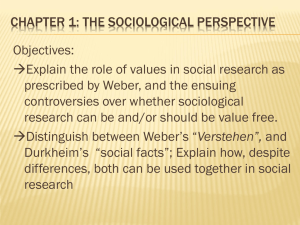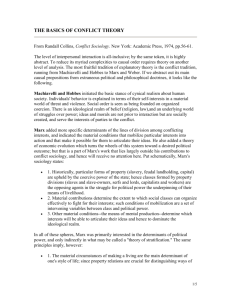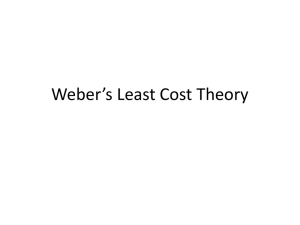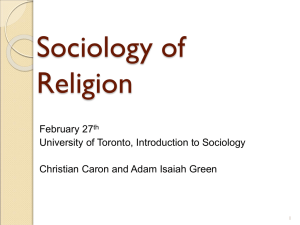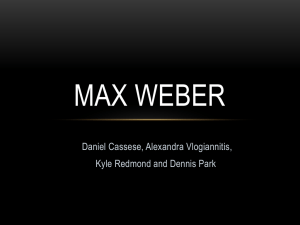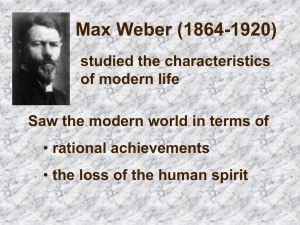File - Catherine Bliss
advertisement
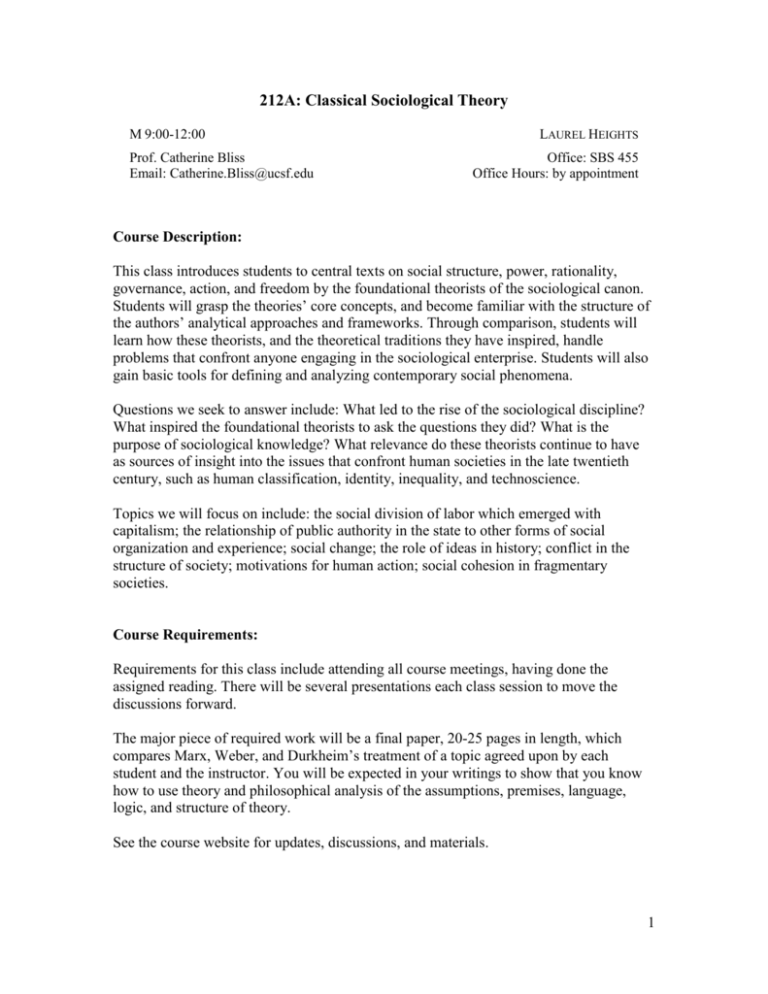
212A: Classical Sociological Theory M 9:00-12:00 Prof. Catherine Bliss Email: Catherine.Bliss@ucsf.edu LAUREL HEIGHTS Office: SBS 455 Office Hours: by appointment Course Description: This class introduces students to central texts on social structure, power, rationality, governance, action, and freedom by the foundational theorists of the sociological canon. Students will grasp the theories’ core concepts, and become familiar with the structure of the authors’ analytical approaches and frameworks. Through comparison, students will learn how these theorists, and the theoretical traditions they have inspired, handle problems that confront anyone engaging in the sociological enterprise. Students will also gain basic tools for defining and analyzing contemporary social phenomena. Questions we seek to answer include: What led to the rise of the sociological discipline? What inspired the foundational theorists to ask the questions they did? What is the purpose of sociological knowledge? What relevance do these theorists continue to have as sources of insight into the issues that confront human societies in the late twentieth century, such as human classification, identity, inequality, and technoscience. Topics we will focus on include: the social division of labor which emerged with capitalism; the relationship of public authority in the state to other forms of social organization and experience; social change; the role of ideas in history; conflict in the structure of society; motivations for human action; social cohesion in fragmentary societies. Course Requirements: Requirements for this class include attending all course meetings, having done the assigned reading. There will be several presentations each class session to move the discussions forward. The major piece of required work will be a final paper, 20-25 pages in length, which compares Marx, Weber, and Durkheim’s treatment of a topic agreed upon by each student and the instructor. You will be expected in your writings to show that you know how to use theory and philosophical analysis of the assumptions, premises, language, logic, and structure of theory. See the course website for updates, discussions, and materials. 1 Required Chapters: Week 1. The Rise of the Social Sciences Randall Collins. Four Sociological Traditions, (NY: Oxford University Press, 1994), 1-46. Norbert Elias. What is Sociology? (NY: Columbia University Press, 1978), 33-49. Week 2. Early Social Theory Élie Halévy. The Growth of Philosophic Radicalism. (NY: A. M. Kelley, 1972), 1-34; 87-150; 225-248. Adam Smith. Wealth of Nations. (London: Collier, 1902), 7-20; 474-479. Week 3. Marx - Human Nature and History Karl Marx and Friedrich Engels, “The Manifesto of the Communist Party” The MarxEngels Reader, edited by Robert Tucker, (NY: Norton, 1978), 473-500. Karl Marx, “The Economic and Philosophic Manuscripts of 1844” The Marx-Engels Reader, edited by Robert Tucker, (NY: Norton, 1978), 70-81; 93-101. Paul Ricouer, Lectures on Ideology and Utopia (NY: Columbia University Press, 1986), 21-67. Week 4. Marx – Ideology Karl Marx and Friedrich Engels, “The German Ideology” The Marx-Engels Reader, edited by Robert Tucker, (NY: Norton, 1978),146-200. Paul Ricouer, Lectures on Ideology and Utopia (NY: Columbia University Press, 1986), 68-102. Week 5. Weber - Meaning and Action Max Weber, “Basic Sociological Terms” Economy and Society, Volume 1, edited by G. Roth and C. Wittich (Berkeley: University of California Press, 1978), 3-38. Max Weber. “Objectivity in Social Science and Social Policy.” The Methodology of the Social Sciences, (NY: Free Press, 1949), 67-112. Week 6. Weber - Religion and Belief 2 Max Weber, The Protestant Ethic and the Spirit of Capitalism, (NY: Routledge, (1996). Max Weber, “The Social Psychology of the World Religions” edited by Gerth and Mills, From Max Weber (NY: Oxford University Press, 1946), 267-300. Max Weber, “Religious Rejections of the World and their Directions” edited by Gerth and Mills, From Max Weber (NY: Oxford University Press, 1946), 323-359. Week 7. Weber - Power and Social Structures Max Weber, “Types of Legitimate Domination” Economy and Society, edited by G. Roth and C. Wittich (Berkeley: University of California Press, 1978), 212245; 266-271. Max Weber, “Class, Status, Party,” From Max Weber, edited by Gerth and Mills, (NY: Oxford University Press, 1946), 180-195. Max Weber, “Bureaucracy” From Max Weber, edited by Gerth and Mills, (NY: Oxford University Press, 1946), 196-244. Max Weber, “The Sociology of Charismatic Authority” From Max Weber, edited by Gerth and Mills, (NY: Oxford University Press, 1946), 245-251 Week 8. Durkheim –Methods Emile Durkheim, Rules of the Sociological Method, edited by Steven Lukes, (NY: Simon and Schuster, 1982). Week 9. Durkheim - Solidarity Emile Durkheim, The Division of Labor in Society, (NY:Free Press, 1933). Week 10. Durkheim - Religion and Representation Emile Durkheim. The Elementary Forms of the Religious Life, (NY: Free Press, 1915). 3
